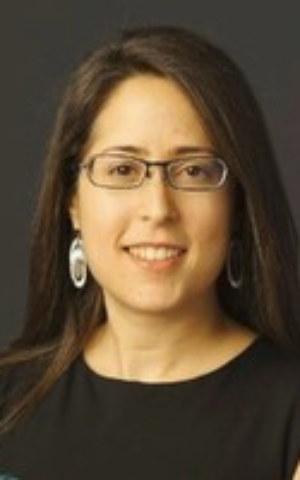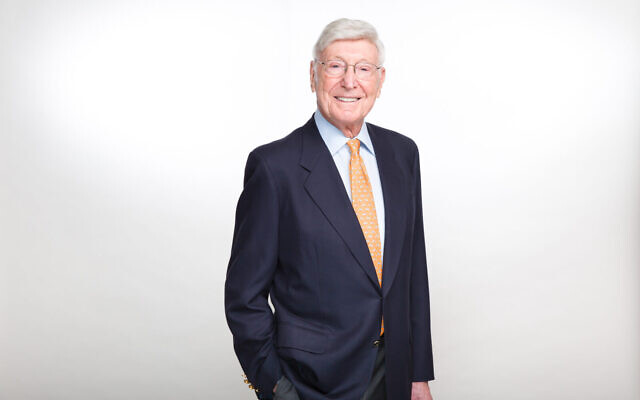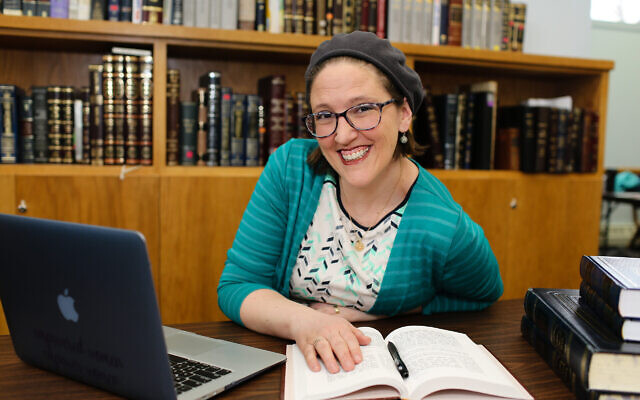Jewish Camps Take on Mental Health Challenges
Yedid Nefesh, a program for counselors and other camp staff, aims to address mental health issues.
Chana Shapiro is an educator, writer, editor and illustrator whose work has appeared in journals, newspapers and magazines. She is a regular contributor to the AJT.
“This generation of children has long struggled with mental health challenges due to the isolating effects of the internet,” says American Camp Association (ACA) CEO Tom Rosenberg, former executive director of Camp Judea in North Carolina. “Technology set the stage. Then COVID came and every parent could see what happens to kids who aren’t in contact with their peers.” Camp staff and campers of all ages have reported higher levels of fragility, volatility and homesickness.
Jill Goldstein Smith, senior programming manager at the Foundation for Jewish Camp (FJC), wrote in November that three major children’s health organizations — the American Academy of Pediatrics, the American Academy of Child and Adolescent Psychiatry and the Children’s Hospital Association — recently declared a national state of emergency in childhood and adolescent mental health, citing “a staggering increase this year in the number of self-injury and suicide cases in five to seventeen-year-olds, compared to the same period of 2019.” According to a study by the National Council of Behavioral Health, “50% of all lifetime cases of mental illness begin by age 14, and 75% by age 24 — the age range of campers and staff.”

“Jewish camps got ahead of this,” Rosenberg said, referring to Yedid Nefesh, a bold initiative by Atlanta philanthropist Bernie Marcus that focuses on helping counselors and other staff deal with their own mental health challenges and those of campers. “I expect it will have far-reaching implications for the entire field of North American camp and the children, youth and adults it serves.”
“Jewish camps build strong Jewish communities by nurturing a sense of connection, belonging and confidence in each camper and staff member,” Marcus said. “We [at the Marcus Foundation] spearheaded Yedid Nefesh — fortuitously before the pandemic — because we recognized the rising tide of mental health needs in our country, especially among the youth.”
In 2019, more than a year prior to the onset of the pandemic, the Marcus Foundation created a multi-year $3.2 million grant for a mental health initiative called Yedid Nefesh (“Beloved of the Soul”), intended to promote wellness at Jewish day and overnight camps. This early support provided mental health internships for returning staff members, brought experienced mental health professionals on board and offered mental health training for hundreds of new staff members.
In 2020 and 2021, Yedid Nefesh worked hard to ease the stigma surrounding mental health issues with focused counselor and staff education and proactive wellness programming. The Marcus Foundation encourages camps to serve as resources for each other and share best practices from within the contemporary camping field, offering matching grants for activities like yoga and mindfulness for staff and campers, with a $500 stipend to help share effective mental health work. The initial cohort included Camp Barney Medintz and Camp Coleman, both of which will be part of the 2022 Yedid Nefesh group, along with 30 other camps.
Two years ago, the FJC began monitoring campers’ mental, emotional, societal and spiritual health needs and challenges. Then, every week from June through August of 2021, the organization tracked the impact of the Yedid Nefesh initiative, surveying camp leadership, mental health professionals and camp counselors in the 32 North American day and overnight camps that were part of the first round of funding. Of the over 2,000 day and overnight camp staff members, including teen- and college-aged counselors, more than 70 percent reported seeking and receiving support from Jewish camp mental health professionals who coached them to help campers by working on their own interpersonal skills, confidence and resiliency.
Bobby Harris, longtime director of Camp Coleman, said, “The Yedid Nefesh initiative was particularly helpful to our mental health professionals. The social workers and psychologists could share challenges that they were having at their camps and receive support as they shared effective interventions and responses with each other.”
Michael Drucker, director at Camp Barney Medintz, also praised Yedid Nefesh. “Barney’s mental health professionals led in addressing issues beyond the purview of our counselors and also supported counselors and staff who experienced mental health issues of their own. Having mental health professionals at camp gave everyone the confidence and comfort to do their jobs, knowing that support was present at all times.”

Drucker added, “We look forward to 2022, with our mental health professionals working in concert with our medical team to provide an overall wellness program that supports our community. We are also thankful to Gail and Lyons Heyman for creating the Den, a sensory space that includes an office for our mental health professionals and a comfortable space for campers and staff when they need some quiet, comfort and support.”
According to Rabba Melissa Scholten-Gutierrez, director of Family Education and Engagement at the Atlanta Jewish Federation, “Overnight camp seamlessly weaves Jewish tradition and rituals, Hebrew and Israel into the fabric of camp life. There is an increased connection to the Jewish community among adults who attended Jewish overnight camps as children and teens, and it impacts the entire family. We hear every year from families who are now incorporating more Jewish moments into their lives, which their children have picked up at camp.”
Scholten-Gutierrez advises families to learn as much as possible about the camps they are considering, because “not every camp is right for every kid, even in the same family.”
Because financial barriers can also be a source of anxiety, the Atlanta Jewish Federation, in partnership with FJC, has set up a robust scholarship program. One Happy Camper offers grants of up to $1000 to Atlanta metro families with children attending nonprofit Jewish overnight camps for the first time.
Harris, now the FJC director of Southeast Region and Israel Initiatives, presents the following statistics from the 2021 independent survey of North American Jewish overnight camps:
- 97% received an excellent or very good rating for creating an atmosphere where the camper is proud to be Jewish.
- 92% received an excellent or very good rating for creating the feeling that the camper is part of something greater (i.e. the Jewish community).
- 91% received an excellent or very good rating for creating appreciation for the celebration of Shabbat.
- 45% of those who used the One Happy Camper grant said that they may not have considered or chosen a Jewish camp without the OHC program. OHC enabled Jewish camps to reach a diverse population within Jewish community, including families with at least one non-North American parent, interfaith families, and families in which parental income is less than $100,000/year.

“The foundational, immersive nature of the Jewish overnight camp is a significantly different environment from other experiences,” Harris said. “It is a 24/7 community comprised of mostly, if not exclusively, Jewish people. Many camp participants share that just living in and being part of such a community is or was one of the most profound influences on their Jewish identity and connection.”
Jeremy J. Fingerman, the FJC’s CEO, agrees. “Our field has an enormous responsibility to teach children and young adults how to take care of one another,” he said, “to proactively cultivate resiliency and wellness and react to the rise in mental health challenges. Jewish camp can embody how we wish the whole world to be.”
- camp
- Community
- Chana Shapiro
- Jewish Camps
- Jewish Day Camps
- Jewish Overnight Camps
- Mental Health
- Camp Staff
- Jewish camping
- COVID
- Technology
- childhood mental health
- adolescent mental health
- self-injury
- suicide
- Mental Illness
- Jewish communities
- North American camp
- pandemic
- mental health initiative
- mental health internships
- mental health professionals
- social workers
- psychologists
- hebrew
- Israel
- Camp Life
- Adults
- children
- Teenagers
- jewish community
- Scholarship
- Camp Judea
- Yedid Nefesh
- The Marcus Foundation for Mental Health Initiative
- Camp Coleman
- One Happy Camper
- Atlanta Jewish Federation
- Narcus Foundation
- eJewish Philanthropy
- National Council of Behavioral Health
- American Academy of Pediatrics
- American Academy of Child and Adolescent Psychiatry
- Children’s Hospital Association
- Foundation for Jewish Camp (FJC)
- American Camp Association (ACA)
- Camp Barney Medintz
- Bernie Marcus
- Bobby Harris
- Melissa Scholten-Gutierrez
- Jill Goldstein Smith
- Jeremy Fingerman
- Tom Rosenberg
- Penny Hunter
- Charles William Eliot
- Michael Drucker
- Gail Heyman
- Lyons Heyman
- Education




comments